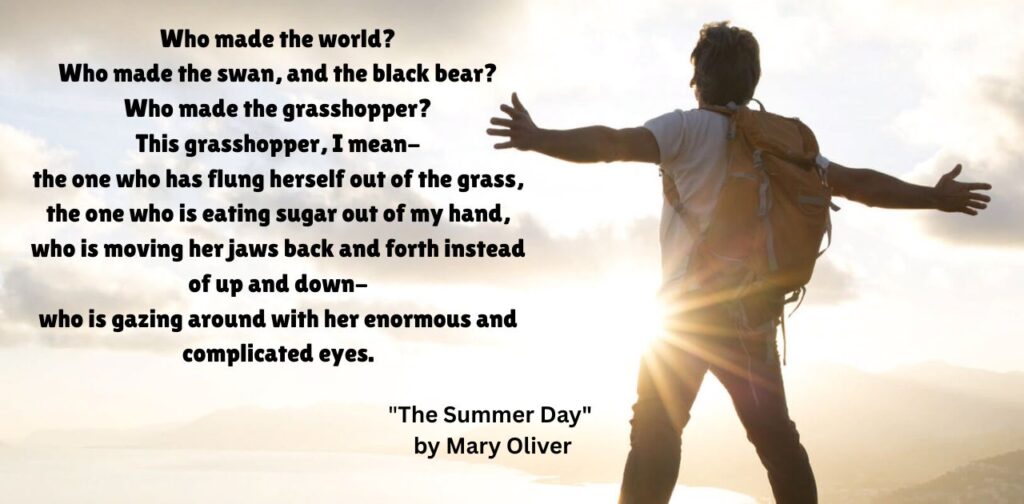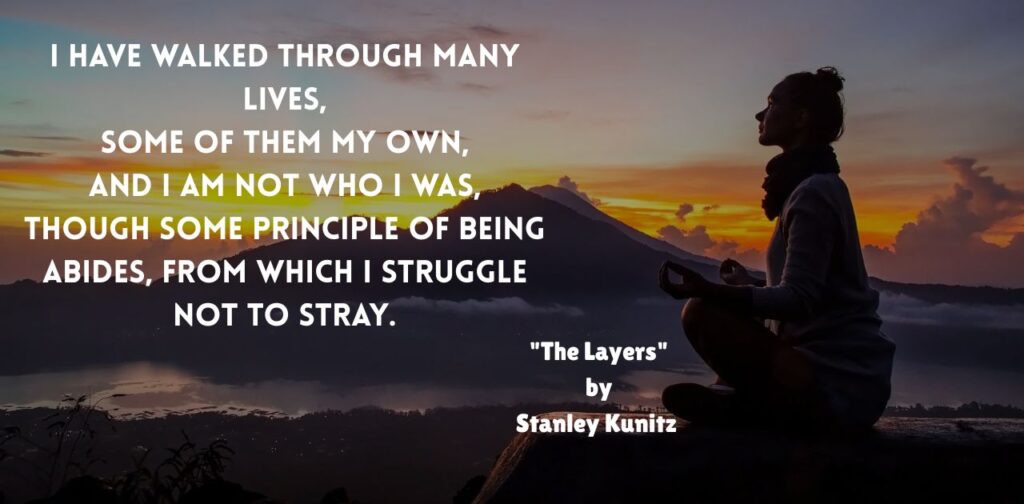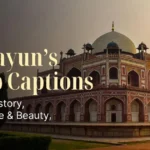Poetry has always served as humanity’s mirror, reflecting our deepest truths and most profound revelations about self-worth and personal acceptance.
These carefully curated self love poems by famous poets offer you a sanctuary of wisdom, where legendary voices echo the timeless message that you are inherently valuable, beautifully flawed, and utterly deserving of love. Through verses that span centuries and cultures, you’ll discover that the journey toward self-compassion is both universal and deeply personal.
“Still I Rise” by Maya Angelou – The Anthem of Unshakeable Self-Worth
You may write me down in history
With your bitter, twisted lies,
You may tread me in the very dirt
But still, like dust, I rise.
Does my sassiness upset you?
Why are you beset with gloom?
‘Cause I walk like I’ve got oil wells
Pumping in my living room.
Just like moons and like suns,
With the certainty of tides,
Just like hopes springing high,
Still I’ll rise.
Maya Angelou’s masterpiece stands as the ultimate self love anthem, reminding you that no external force can diminish your inherent worth. This poem teaches the revolutionary act of rising above criticism and societal expectations while maintaining your dignity and self-respect. The rhythmic repetition of “Still I Rise” becomes a mantra for anyone struggling to maintain their self-esteem in the face of adversity.
“Song of Myself” by Walt Whitman – Celebrating Your Magnificent Existence
I celebrate myself, and sing myself,
And what I assume you shall assume,
For every atom belonging to me as good belongs to you.
I loafe and invite my soul,
I lean and loafe at my ease observing a spear of summer grass.
My tongue, every atom of my blood, form’d from this soil,
this air,
Born here of parents born here from parents the same,
and their parents the same,
I, now thirty-seven years old in perfect health begin,
Hoping to cease not till death.
Whitman’s revolutionary self-celebration poem invites you to embrace every facet of your being with unabashed joy and self-acceptance. This groundbreaking piece challenges conventional modesty by declaring that loving yourself isn’t narcissistic—it’s necessary and natural. The poet’s bold proclamation of self-worth serves as permission for you to honor your own existence without apology.
“Phenomenal Woman” by Maya Angelou – Embracing Your Unique Power
Pretty women wonder where my secret lies.
I’m not cute or built to suit a fashion model’s size
But when I start to tell them,
They think I’m telling lies.
I say,
It’s in the reach of my arms,
The span of my hips,
The stride of my step,
The curl of my lips.
I’m a woman
Phenomenally.
Phenomenal woman,
That’s me.
This empowering self love poem redefines beauty standards and encourages you to find confidence in your authentic self rather than societal expectations. Angelou’s celebration of inner magnetism teaches that true attractiveness emanates from self-assurance and personal power. The poem’s infectious rhythm mirrors the confidence it promotes, making it impossible to read without feeling your own phenomenal nature.
“Wild Geese” by Mary Oliver – Finding Freedom in Self-Compassion
You do not have to be good.
You do not have to walk on your knees
for a hundred miles through the desert repenting.
You only have to let the soft animal of your body
love what it loves.
Tell me about despair, yours, and I will tell you mine.
Meanwhile the world goes on.
Meanwhile the sun and the clear pebbles of the rain
are moving across the landscapes,
over the prairies and the deep trees,
the mountains and the rivers.
Mary Oliver’s liberating verses offer you permission to release self-judgment and embrace your natural desires and instincts. This self-compassion poem reminds you that perfection isn’t a prerequisite for worthiness and that your place in the world is guaranteed simply by existing. Oliver’s gentle wisdom encourages you to trust your inner voice while finding solace in nature’s unconditional acceptance.
“The Guest House” by Rumi – Welcoming All Parts of Yourself

This being human is a guest house.
Every morning a new arrival.
A joy, a depression, a meanness,
some momentary awareness comes
as an unexpected visitor.
Welcome and entertain them all!
Even if they’re a crowd of sorrows,
who violently sweep your house
empty of its furniture,
still, treat each guest honorably.
He may be clearing you out
for some new delight.
Rumi’s profound metaphor transforms self-acceptance into a practice of hospitality toward your own emotions and experiences. This mindful self love poem teaches you to embrace all aspects of your humanity, even the uncomfortable ones, as temporary visitors rather than permanent residents. The poem’s wisdom lies in its gentle reminder that every emotion serves a purpose in your journey toward wholeness and self-understanding.
“Love After Love” by Derek Walcott – Returning to Your Authentic Self
The time will come
when, with elation
you will greet yourself arriving
at your own door, in your own mirror
and each will smile at the other’s welcome,
and say, sit here. Eat.
You will love again the stranger who was your self.
Give wine. Give bread. Give back your heart
to itself, to the stranger who has loved you
all your life, whom you ignored
for another, who knows you by heart.
Take down the love letters from the bookshelf,
the photographs, the desperate notes,
peel your own image from the mirror.
Sit. Feast on your life.
Walcott’s tender invitation to self-reunion captures the profound joy of returning to your authentic self after periods of self-abandonment. This transformative self love poem speaks to anyone who has lost themselves in relationships or external validation, offering hope for rediscovering your own worth. The poem’s imagery of feasting on your own life suggests that self-love is not just healing but celebratory.
More Posts:24+ Long Distance Relationship Poems in Hindi
“Mirror” by Sylvia Plath – Confronting Self-Reflection with Courage
I am silver and exact. I have no preconceptions.
Whatever I see I swallow immediately
Just as it is, unmisted by love or dislike.
I am not cruel, only truthful‚
The eye of a little god, four-cornered.
Most of the time I meditate on the opposite wall.
It is pink, with speckles. I have looked at it so long
I think it is part of my heart. But it flickers.
Faces and darkness separate us over and over.
Now I am a lake. A woman bends over me,
Searching my reaches for what she really is.
Then she turns to those liars, the candles or the moon.
I see her back, and reflect it faithfully.
She rewards me with tears and an agitation of hands.
Plath’s haunting examination of self-perception challenges you to confront your reflection with honesty rather than seeking flattering distortions. This introspective poem about self-image reveals the tension between external appearance and internal truth, encouraging authentic self-assessment without harsh judgment. The mirror’s neutral perspective offers a model for observing yourself with clarity rather than criticism.
“A Psalm of Life” by Henry Wadsworth Longfellow – Living with Purpose and Self-Respect
Tell me not, in mournful numbers,
Life is but an empty dream!
For the soul is dead that slumbers,
And things are not what they seem.
Life is real! Life is earnest!
And the grave is not its goal;
Dust thou art, to dust returnest,
Was not spoken of the soul.
Not enjoyment, and not sorrow,
Is our destined end or way;
But to act, that each to-morrow
Find us farther than to-day.
Longfellow’s inspiring verses encourage you to live with intention and self-respect, viewing life as a sacred opportunity rather than a burden. This motivational self love poem reminds you that your existence has inherent meaning and that each day offers chances for growth and contribution. The poem’s emphasis on forward movement resonates with anyone seeking to build self-worth through purposeful action.
“Invictus” by William Ernest Henley – Mastering Your Inner Strength
Out of the night that covers me,
Black as the pit from pole to pole,
I thank whatever gods may be
For my unconquerable soul.
In the fell clutch of circumstance
I have not winced nor cried aloud.
Under the bludgeonings of chance
My head is bloody, but unbowed.
Beyond this place of wrath and tears
Looms but the Horror of the shade,
And yet the menace of the years
Finds and shall find me unafraid.
It matters not how strait the gate,
How charged with punishments the scroll,
I am the master of my fate:
I am the captain of my soul.
Henley’s triumphant declaration of inner sovereignty empowers you to recognize your ability to maintain self-respect and dignity regardless of external circumstances. This resilient self love poem has inspired countless individuals to find strength within themselves when facing adversity. The poem’s powerful closing lines serve as a reminder that while you cannot control what happens to you, you remain the master of your responses and self-perception.
“The Journey” by Mary Oliver – Choosing Self-Preservation Over People-Pleasing

One day you finally knew
what you had to do, and began,
though the voices around you
kept shouting
their bad advice‚
though the whole house
began to tremble
and you felt the old tug
at your ankles.
“Mend my life!”
each voice cried.
But you didn’t stop.
You knew what you had to do,
though the wind pried
with its stiff fingers
at the very foundations,
though their melancholy
was terrible.
It was already late
enough, and a wild night,
and the road full of fallen
branches and stones.
Oliver’s courageous narrative celebrates the moment you choose self-preservation over the demands and expectations of others. This liberating self love poem speaks to anyone who has struggled with boundaries and people-pleasing, offering validation for the difficult but necessary choice to prioritize your own well-being. The poem’s imagery of a treacherous journey reflects the courage required to honor your authentic needs.
“To Be of Use” by Marge Piercy – Finding Worth Through Authentic Contribution
The people I love the best
jump into work head first
without dallying in the shallows
and swim off with sure strokes almost out of sight.
They seem to become natives of that element,
the black sleek heads of seals
bouncing like half-submerged balls.
I love people who harness themselves, an ox to a heavy cart,
who pull like water buffalo, with massive patience,
who strain in the mud and the muck to move things forward,
who do what has to be done, again and again.
I want to be with people who submerge
in the task, who go into the fields to harvest
and work in a row and pass the bags along,
who are not parlor generals and field deserters
but move in a common rhythm
when the food must come in or the fire be put out.
Piercy’s celebration of meaningful work encourages you to find self-worth through genuine contribution rather than performative achievement. This purposeful self love poem reminds you that true fulfillment comes from aligning your efforts with your values and making authentic contributions to the world. The poem’s imagery of collective labor emphasizes that self-respect grows through honest work and collaborative effort.
More Posts:30+ Hindi Poems on Love by Famous Poets
“Desiderata” by Max Ehrmann – A Blueprint for Gentle Self-Acceptance
Go placidly amid the noise and haste,
and remember what peace there may be in silence.
As far as possible without surrender
be on good terms with all persons.
Speak your truth quietly and clearly;
and listen to others,
even the dull and the ignorant;
they too have their story.
Avoid loud and aggressive persons,
they are vexations to the spirit.
If you compare yourself with others,
you may become vain and bitter;
for always there will be greater and lesser persons than yourself.
Enjoy your achievements as well as your plans.
Keep interested in your own career, however humble;
it is a real possession in the changing fortunes of time.
Exercise caution in your business affairs;
for the world is full of trickery.
But let this not blind you to what virtue there is;
many persons strive for high ideals;
and everywhere life is full of heroism.
Ehrmann’s timeless wisdom offers you a comprehensive guide for living with peace, dignity, and self-compassion. This philosophical self love poem provides practical advice for maintaining emotional balance while navigating life’s complexities. The poem’s gentle tone and inclusive perspective remind you that self-love doesn’t require perfection—it requires acceptance of your humanity and commitment to treating yourself with kindness.
“I Celebrate Myself” by Walt Whitman – The Art of Self-Appreciation
I celebrate myself,
And what I assume you shall assume,
For every atom belonging to me as good belongs to you.
I loafe and invite my soul,
I lean and loafe at my ease . . . . observing a spear of
summer grass.
Houses and rooms are full of perfumes . . . . the shelves are
crowded with perfumes,
I breathe the fragrance myself, and know it and like it,
The distillation would intoxicate me also, but I shall not let it.
The atmosphere is not a perfume . . . . it has no taste of the
distillation . . . . it is odorless,
It is for my mouth forever . . . . I am in love with it,
I will go to the bank by the wood and become undisguised
and naked,
I am mad for it to be in contact with me.
Whitman’s exuberant self-celebration invites you to embrace unapologetic self-appreciation as a natural and healthy practice. This joyful self love poem challenges cultural taboos against self-praise by demonstrating that acknowledging your worth benefits everyone around you. The poem’s sensual imagery connects self-love with the pleasure of being alive and fully present in your own experience.
“Lady Lazarus” by Sylvia Plath – Rising from Self-Doubt with Fierce Determination
I have done it again.
One year in every ten
I manage it——
A sort of walking miracle, my skin
Bright as a Nazi lampshade,
My right foot
A paperweight,
My face a featureless, fine
Jew linen.
Peel off the napkin
O my enemy.
Do I terrify?——
The nose, the eye pits, the full set of teeth?
The sour breath
Will vanish in a day.
Soon, soon the flesh
The grave cave ate will be
At home on me
And I a smiling woman.
I am only thirty.
And like the cat I have nine lives.
Plath’s powerful resurrection narrative transforms personal struggle into a declaration of indestructible self-worth. This fierce self love poem speaks to anyone who has faced depression, trauma, or repeated setbacks, offering hope that you can emerge stronger each time. The poem’s defiant tone reminds you that resilience itself is a form of self-love—a refusal to let circumstances diminish your essential worth.
“On Being Brought from Africa to America” by Phillis Wheatley – Reclaiming Identity and Self-Worth
‘Twas mercy brought me from my Pagan land,
Taught my benighted soul to understand
That there’s a God, that there’s a Saviour too:
Once I redemption neither sought nor knew.
Some view our sable race with scornful eye,
“Their colour is a diabolic die.”
Remember, Christians, Negros, black as Cain,
May be refin’d, and join th’ angelic train.
Wheatley’s groundbreaking verses demonstrate the revolutionary act of claiming self-worth in the face of systemic oppression and dehumanization. This courageous self love poem by America’s first published African American poet asserts the inherent dignity and spiritual value of all people regardless of race. The poem’s historical significance reminds you that self-love can be both personal healing and political resistance.
“The Summer Day” by Mary Oliver – Honoring Your Precious Life

Who made the world?
Who made the swan, and the black bear?
Who made the grasshopper?
This grasshopper, I mean-
the one who has flung herself out of the grass,
the one who is eating sugar out of my hand,
who is moving her jaws back and forth instead of up and down-
who is gazing around with her enormous and complicated eyes.
Now she lifts her pale forearms and thoroughly washes her face.
Now she snaps her wings open, and floats away.
I don’t know exactly what a prayer is.
I do know how to pay attention, how to fall down
into the grass, how to kneel down in the grass,
how to be idle and blessed, how to stroll through the fields,
which is what I have been doing all day.
Tell me, what else should I do?
Doesn’t everything die at last, and too soon?
Tell me, what is it you plan to do
with your one wild and precious life?
Oliver’s profound meditation on mortality and purpose challenges you to recognize the preciousness of your existence and make conscious choices about how to spend your time. This contemplative self love poem reminds you that your life is both finite and infinitely valuable, deserving of careful attention and intentional living. The poem’s famous closing question serves as a daily reminder to honor your one wild and precious life through mindful and authentic choices.
“I Am Not Done With My Changes” by Stanley Kunitz – Embracing Continuous Self-Evolution
At seventy-four I’m still changing my life.
Yes, I’ve made mistakes,
but I think of them as music, as jazz, something that seemed wrong
but now seems right,
or something that felt right at the time
but now seems wrong,
something I can improvise on.
I’m not done with my changes.
Kunitz’s liberating declaration celebrates personal growth as a lifelong journey rather than a destination. This evolving self love poem reminds you that self-acceptance doesn’t mean stagnation—it means embracing your capacity for continuous transformation and improvement. The jazz metaphor suggests that even your mistakes contribute to the beautiful improvisation of your life, deserving appreciation rather than regret.
More Posts:Heartfelt Happy Birthday to My Sister in Heaven Poems
“Autobiography in Five Short Chapters” by Portia Nelson – Learning Self-Responsibility
Chapter One
I walk down the street.
There is a deep hole in the sidewalk.
I fall in.
I am lost… I am helpless.
It isn’t my fault.
It takes forever to find a way out.
Chapter Two
I walk down the same street.
There is a deep hole in the sidewalk.
I pretend I don’t see it.
I fall in again.
I can’t believe I am in this same place.
But, it isn’t my fault.
It still takes a long time to get out.
Chapter Three
I walk down the same street.
There is a deep hole in the sidewalk.
I see it is there.
I still fall in… it’s a habit.
My eyes are open.
I know where I am.
It is my fault.
I get out immediately.
Chapter Four
I walk down the same street.
There is a deep hole in the sidewalk.
I walk around it.
Chapter Five
I walk down another street.
Nelson’s simple yet profound progression illustrates the journey from victimhood to self-empowerment through increasing self-awareness and personal responsibility. This transformative self love poem teaches you that self-compassion includes holding yourself accountable for your choices while maintaining kindness toward your learning process. The poem’s structure demonstrates that personal growth happens gradually and that each stage deserves recognition and patience.
“The Quiet World” by Jeffrey McDaniel – Finding Peace in Self-Acceptance
In an effort to get people to look
into each other’s eyes more,
and also to appease the mutes,
the government has decided
to allot each person exactly one hundred
and sixty-seven words, per day.
When the phone rings, I put it to my ear
without saying hello. In the restaurant
I point at chicken noodle soup.
I am adjusting well to the new way.
Late at night, I call my long distance lover,
proudly say I only used fifty-nine today.
I saved the rest for you.
When she doesn’t respond,
I know she’s used up all her words,
so I slowly whisper I love you
thirty-two and a third times.
After that, we just sit on the line
and listen to each other breathe.
McDaniel’s imaginative scenario creates space for quiet contemplation and deeper connection, both with others and yourself. This mindful self love poem suggests that self-acceptance often flourishes in moments of silence and stillness rather than constant chatter and activity. The poem’s tender ending demonstrates how love—including self-love—can be expressed through presence and attention rather than words alone.
“For Women Who Are Difficult to Love” by Warsan Shire – Celebrating Your Authentic Edge
you are a horse running alone
and he tries to tame you
compares you to an impossible highway
to a burning house
says you are blinding him
that he could never leave you
forget you
want anything but you
you dizzy him, you are unbearable
every woman before or after you
is doomed to be compared to you
you are a horse running alone
and he tries to tame you
compares you to an impossible highway
to a burning house
Shire’s fierce celebration of untamed femininity validates your right to remain authentically yourself even when others find your intensity challenging. This empowering self love poem reminds you that being “difficult to love” often means being too powerful, too honest, or too alive for those who prefer comfortable predictability. The poem’s recurring horse imagery emphasizes that your wild nature is not a flaw to be corrected but a strength to be celebrated.
“The Layers” by Stanley Kunitz – Honoring Your Life’s Journey

I have walked through many lives,
some of them my own,
and I am not who I was,
though some principle of being
abides, from which I struggle
not to stray.
When I look behind,
as I am compelled to look
before I can gather strength
to proceed on my journey,
I see the milestones dwindling
toward the horizon
and the slow fires trailing
from the abandoned campsites,
over which scavenger angels
wheel on heavy wings.
Kunitz’s reflective journey through personal history encourages you to honor all the versions of yourself you’ve been while recognizing the essential core that remains constant. This wise self love poem teaches you that self-acceptance includes embracing your entire journey—the abandoned campsites and the continuing path ahead. The poem’s layered imagery suggests that each phase of your life adds depth and richness to your evolving identity.
“Instructions for a Bad Day” by Shane Koyczan – Self-Care Through Difficult Times
When you’re having a bad day,
remember that tomorrow is a blank page.
Remember that you are the author of your life.
You can’t go back and erase what’s been written,
but you can choose what comes next.
Choose to be gentle with yourself.
Choose to remember that bad days don’t last,
but resilient people do.
Choose to remember
that you have survived
100% of your bad days so far.
That’s a pretty good track record.
Koyczan’s compassionate guidance offers practical self-love strategies for navigating difficult periods with grace and self-compassion. This supportive self love poem reminds you that resilience is built through small acts of kindness toward yourself during challenging times. The poem’s encouraging statistics about your survival rate provide concrete evidence of your strength and ability to persevere.
“Wild Woman” by Clarissa Pinkola Estés – Reconnecting with Your Untamed Spirit
If you have lost your way,
there are trails, there are paths.
If you have no guide,
you can find your way by following
the light of the one who walked before you.
If you have forgotten how to fly,
lie down beneath the night sky
and remember
that you were born from stardust,
that your bones know the songs
your grandmothers sang,
that your blood carries
the memory of every woman
who came before you.
You are the daughter of the moon,
the sister of the stars.
You are wild and free
and exactly as you should be.
Estés’ mystical celebration of feminine wildness invites you to reconnect with your instinctual wisdom and natural power. This ancestral self love poem reminds you that your authentic nature is both ancient and eternal, connected to generations of strong women who survived and thrived. The poem’s cosmic imagery emphasizes that your wild spirit is not something to be tamed but something to be honored and expressed.
More Posts:30+ Timeless Poems About Past, Present and Future
“The Way It Is” by William Stafford – Trusting Your Inner Compass
There’s a thread you follow. It goes among
things that change. But it doesn’t change.
People wonder about what you are pursuing.
You have to explain about the thread.
But it is hard for others to see.
While you hold it you can’t get lost.
Tragedies happen; people get hurt
or die; and you suffer and get old.
Nothing you do can stop time’s unfolding.
You don’t ever let go of the thread.
Stafford’s metaphorical thread represents the inner guidance that remains constant throughout life’s changes and challenges. This trusting self love poem encourages you to honor your authentic path even when others cannot understand or appreciate your choices. The poem’s gentle wisdom reminds you that self-love includes trusting your inner compass and remaining faithful to your true nature regardless of external pressures.
“Self-Love” by Rupi Kaur – Modern Mantras for Self-Acceptance
how you love yourself is
how you teach others
to love you
you must want to spend
the rest of your life
with yourself first
the relationship with yourself
sets the tone for every other
relationship you have
Kaur’s contemporary wisdom distills self-love into essential truths about relationship patterns and personal boundaries. This modern self love poem reminds you that self-respect is not selfish but foundational to all healthy relationships. The poem’s simple yet profound observations encourage you to examine how your self-treatment influences the way others treat you and to prioritize your relationship with yourself as the source of all other connections.
Conclusion
These self love poems by famous poets serve as your personal anthology of wisdom, encouragement, and validation for the ongoing journey of self-acceptance. Each verse offers a different pathway to self-compassion, whether through Maya Angelou’s fierce resilience, Mary Oliver’s gentle nature wisdom, or Rumi’s mystical acceptance of human complexity. Return to these timeless words whenever you need reminders of your inherent worth, your capacity for growth, and your right to love yourself exactly as you are.

Admin of https://aspirenowa.com/. Sharing Touching and Thoughtful Poems for all Hearts. I Believe in Simple Words, Deep Meaning, and Inspiring Emotions through Poetry for Every Reader.










